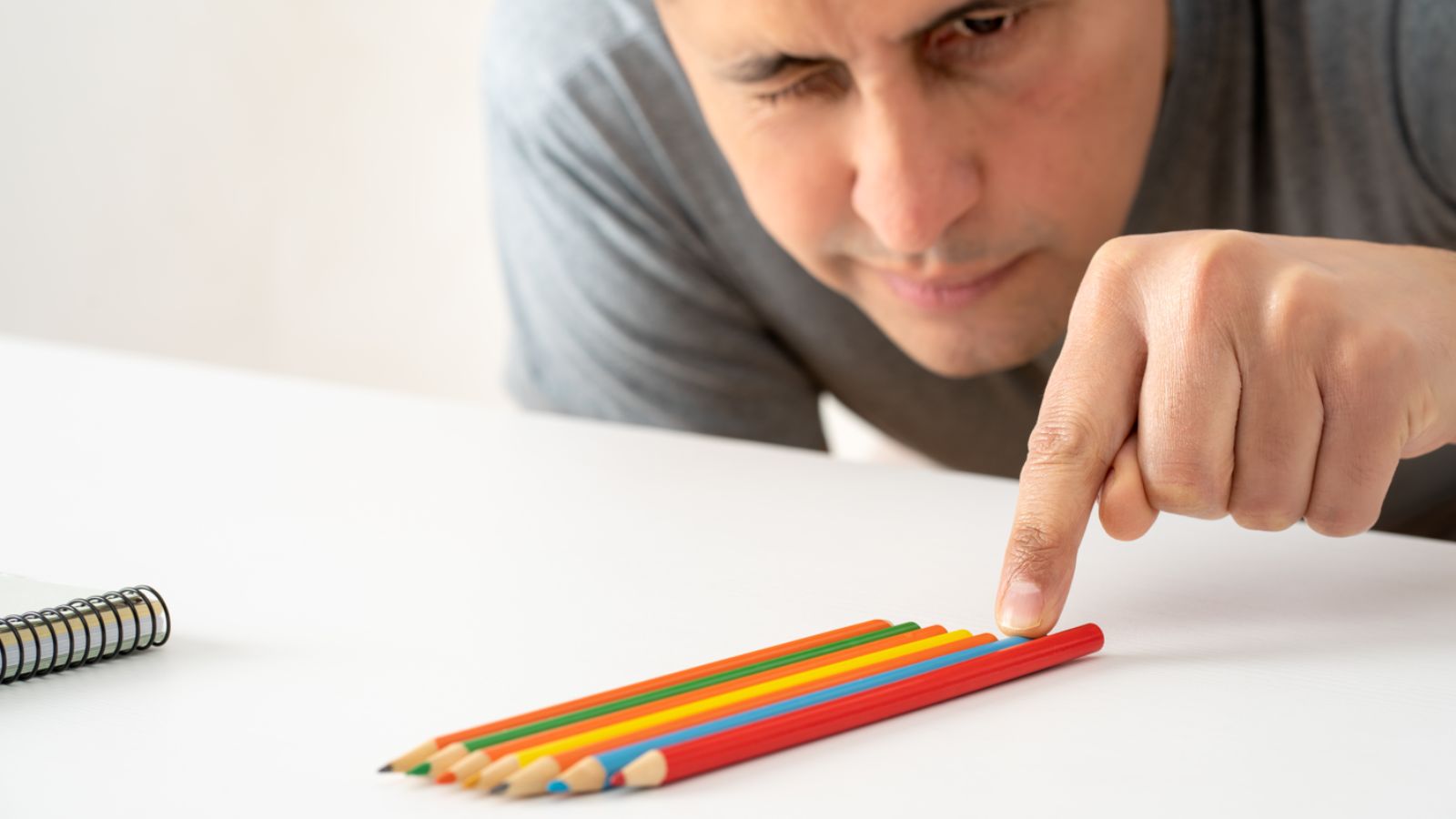It’s not always obvious when someone is struggling with self-esteem, but there are subtle ways it can manifest in daily life. While these habits might seem minor or even normal, they often reveal deeper insecurities. Here are 19 behaviors that people who secretly don’t like themselves often exhibit.
Seeking Constant Validation

People who don’t feel good about themselves frequently look for approval from others. This might be through social media likes or just needing reassurance in conversations; either way, they rely on external sources to affirm their worth. Unfortunately, as Psych Central points out, this constant need can make them overly dependent on others’ opinions, preventing them from just being themselves.
Avoiding Eye Contact

Those with low self-esteem often find it difficult to maintain eye contact, as the fear of being judged or seen as inadequate can make direct interaction uncomfortable. Instead of engaging fully, they may look away or down, unintentionally signaling their discomfort and lack of confidence in themselves.
Over-Apologizing

If you notice someone constantly saying “sorry” for even the smallest of things, they likely aren’t their own biggest fan. They might feel as though they are constantly inconveniencing others and seek to smooth over any perceived slight, a habit that can reveal a deep sense of unworthiness and lack of self-confidence.
Self-Deprecating Humor

People who don’t like themselves often use humor to mask their insecurities, making jokes at their own expense to counteract criticism or to deflect attention from their perceived flaws. This type of humor might seem harmless on the surface, especially here in the UK, where self-deprecating humor is popular, but it’s still a sign of deeper self-esteem issues.
Avoiding Compliments

Sadly, those who struggle with self-worth often find it hard to accept praise, although they’re happy to give it. When given a compliment, they might downplay it, deflect it, or outright deny it. This discomfort with receiving positive feedback suggests that they don’t believe they are deserving of it, reflecting their internal struggles with self-esteem.
Procrastination

Another common habit of people who secretly don’t like themselves is procrastination, which can be a sign of underlying self-doubt. They might avoid tasks because they fear failure or feel incapable of success, causing their avoidant behavior that can lead to a cycle of anxiety and guilt. Sadly, this will only further reinforce their negative self-perception and feelings of inadequacy.
People-Pleasing

If someone doesn’t like themselves, they’ll regularly go out of their way to please others, sometimes at their own expense. They may agree to things they don’t want to do or suppress their own needs to avoid conflict, a habit that stems from a fear of rejection and a need for external approval to feel valued.
Negative Self-Talk

Those who struggle with self-esteem often engage in negative self-talk, constantly criticizing themselves, focusing on their flaws, and expecting the worst outcomes. This internal dialogue can be harsh and unforgiving, further eroding their self-confidence and reinforcing their belief that they are not good enough.
Isolating Themselves

It’s a sad fact that people who don’t like themselves may withdraw from social situations, preferring isolation over interaction. They might feel unworthy of others’ time and attention or fear judgment, even if they don’t realize it. This behavior is particularly destructive, as isolation will only prevent them from improving their self-esteem through socializing.
Perfectionism

Another common habit of people with low self-esteem is perfectionism, which is often used as a cover for deep-seated self-doubt. They’ll set unrealistically high standards to prove their worth, but sadly, this is counterproductive as they often end up feeling disappointed when they can’t meet these expectations.
Comparing Themselves to Others

It’s very common for those who are not confident in themselves to make a habit of constant comparison, especially on social media. Measuring their worth against others is very common, and they’ll often feel inferior as a result. This habit can diminish their self-esteem further, as they focus on perceived deficiencies rather than appreciating their own strengths.
Sabotaging Success

Tragically, self-sabotage is a highly common behavior among those who secretly dislike themselves. You might notice them undermining their own efforts, procrastinating, or quitting just before achieving success. This behavior often stems from a fear of success or a belief that they don’t deserve to succeed, reinforcing their negative self-image.
Avoiding Risks

People who don’t like themselves tend to avoid taking risks, fearing failure or judgment. They might stick to safe, familiar routines to avoid the possibility of making mistakes. While this might feel comforting for them, it will unfortunately keep their lives stagnant, preventing them from ever experiencing opportunities that could otherwise improve their sense of self-worth.
Difficulty Making Decisions

Indecisiveness is another common trait among those with low self-esteem, struggling to make decisions because they doubt their own judgment. Naturally, this hesitation can lead to missed opportunities and further self-doubt, perpetuating a cycle of uncertainty and lack of confidence.
Overly Defensive

If you notice someone being overly defensive, this might be because they secretly don’t like themselves. You’ll catch them taking constructive criticism as a personal attack, reacting strongly to protect their fragile self-esteem. This defensiveness can strain relationships and prevent them from accepting help or improving themselves because, ultimately, the criticism is likely coming from the right place.
Seeking Distractions

To avoid confronting their feelings, those who don’t like themselves often seek distractions, such as through excessive screen time, working, alcohol, or other coping mechanisms. They’ll keep themselves occupied to avoid reflecting on their self-worth, and sadly, this constant distraction can prevent them from addressing the root of their insecurities.
Over-Identifying with Work

It’s surprisingly common for people who don’t like themselves to tie their self-worth too closely to their work or achievements. Overworking themselves to gain approval or feel valuable is second nature to them, but unfortunately, this will inevitably lead to burnout and reinforce their belief that their value is tied to their productivity rather than their intrinsic worth.
Difficulty Accepting Help

Those who struggle with self-esteem may find it hard to accept help from others. They might feel that they should handle everything on their own or worry about being seen as weak. This reluctance to seek or accept assistance can isolate them further and prevent them from building supportive relationships.
Holding Grudges

Finally, holding onto grudges can be a sign of low self-esteem, as people who don’t like themselves might struggle to forgive others as they internalize offenses more deeply. This inability to let go of negative experiences can trap them in a cycle of resentment and reinforce their negative self-perception. So, if you notice such behavior, encourage the person to forgive and forget.

